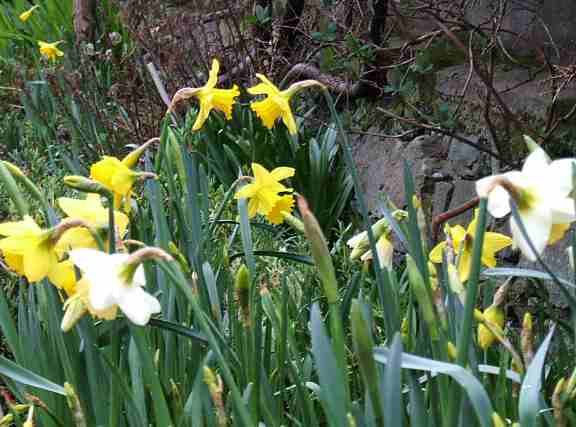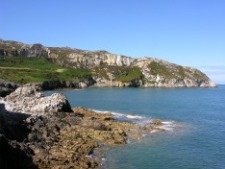|
Your Wildlife Garden, A Safe Haven
Enjoy this very informative article on the benefits of a Wildlife Garden by Ann Williams of North Wales Wildlife Trust.
With the practical wildlife gardening tips here, you will learn how to make the most of your very own wildlife garden, whether you live on Anglesey, in Snowdon or further afield.
Gardening for me is an escape from demands, deadlines and appointments. Once in the garden, my mind starts to wander; I get into “pottering” mode; perhaps I’ll sow some seeds.
First I need to have a rummage through the shed to find the right size tray . . . and there is the bag of lime, which reminds me I need to put some on the pea beds, so I go and do that instead.
Then, while I’m filling the watering can from the butt, I notice there’s a toad peeping out from under a pile of twigs and leaves, and I sit and watch it. I wonder if it’s going to breed in the pond, and think of how a little colony of toads would be great for controlling the slug population. Wildlife and my garden go hand in hand.
A wander into the garden in the evening would be much poorer if the song thrush wasn’t belting out its song from the top of an ash tree.
With natural habitats such as wildflower meadows and ancient woodlands still disappearing at an alarming rate, gardens are important havens for a wide range of animals - house sparrows, hummingbird hawkmoths, Pipistrelle bats, great crested newts, hedgehogs and bumblebees.
There are an estimated 15 million gardens in the UK covering around 270,000 hectares. Now that’s bigger than all the land in the UK protected as National Nature Reserves! The Wild About Gardens Project is a joint venture between the Royal Horticultural Society (RHS) and The Wildlife Trusts.
The project promotes the value of gardening for wildlife, both for the wildlife which increasingly needs safe havens, and for people, who can get so much from close encounters with wild animals.
Wild about Gardens aims to bring the worlds of gardening and nature conservation closer together and to increase understanding of the significance of local wildlife. It also celebrates what garden owners are already doing to support wildlife and builds on existing research into the wildlife potential of domestic gardens. As part of the project there is a new book entitled “Wildlife Gardening for Everyone”, which shows people how they can attract creatures into their gardens.
The book is crammed with advice from a variety of RHS and Wildlife Trust experts on how to develop and cultivate a wildlife friendly garden. WILDLIFE IN YOUR GARDEN Did you know?
The North Wales Wildlife Trust with 33 nature reserves is one of a partnership of 48 Wildlife Trusts across the UK caring for over 2,500 nature reserves.
The partnership campaigns for the protection of wildlife and invests in the future by fostering a greater understanding and appreciation of nature by others. Ann Williams
We thank Ann Williams for her very informative article how you can create your own special garden as a wildlife haven here on Anglesey or elsewhere in the world.
|













